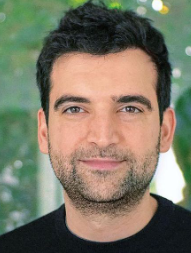Latin American startups witnessed a 70% year-over-year decline in venture capital funding during the second quarter, signalling a challenging environment. However, there was no further decrease in investment flows compared to the first quarter of this year, hinting at a potential stabilization of the capital crisis that has impacted entrepreneurs globally.
Funding to Latin American startups recorded $800 million in the three months, according to preliminary data by the Latin American Venture Capital Association, or Lavca. The inflow starkly contrasted with the $2.6 billion in the year-ago quarter, with fintech as the major sector drawing investment capital.
Across the globe, investments in tech-related startups have seen a sharp reversal following favourable years. For Latin America in particular, funds to startups saw record-breaking years in 2021 and 2022, propelling many fintech endeavours to a big scale.
But just like other regions, Latin America saw a dip in venture capital investment in recent quarters. To be sure, there really hasn’t been a market for large rounds this year, as most investments tend to concentrate on early-stage and seed capital. For those A-rounds that are gradually coming back, founders usually agree to 20% to 40% lower valuations, according to industry sources.
Latam startups: Fintechs in Mexico lead the way
This quarter, unicorn Clara led The biggest investment round in equity. The Mexican company focuses on spend management software for companies in Latin America, including Brazil. Earlier in April, it tapped $60 million in a round led by GGV Capital. The investment is an extension of a $70 million Series B round in 2021, the company’s first year of operations. During this last round, GGV’s managing partner Hans Tung took a seat on the startup board of directors.

In the fintech sector as well, Kapital in Mexico saw one of the biggest rounds in the period. The company, part of Y Combinator in 2022, offers SMEs loans and cashflow management tools. It raised $20 million in a Series A and $45 million in a debt facility in June.
The North American fintech seeks to increase SMEs’ access to financing in Latin America and will apply the capital to product development and its expansion into Colombia. Niya Partners and Tribe Capital led the equity round. On the debt space, Accial Capital provided the loan facility.
More room for venture debt
To be sure, venture debt remained well represented within the biggest tickets for the period, with R2 and Stori as the most notable fintech financings. The former secured a $100 million credit line from San Francisco-based Community Investment Management. The goal is to boost lending in Mexico, its largest market.
Mexico-focused unicorn fintech Stori, which markets a credit card to the underbanked, also saw a credit line from Community Investment Management, this time for $50 million. Earlier this year, the company reported 2 million customers in the North American market.
Recent news offers hope for Latin American fintech founders. Several initiatives in the venture capital space point to increased funding in the next few quarters. Former Softbank Latam strongman Marcelo Claure recently announced the creation of its fund, Bicycle Capital. Also, QED Investors, one of the most active U.S. funds in Latin America, raised $1 billion in capital to invest globally in the fintech sector.
“We plan to participate in a big way in Latin America through the entire fund,” partner Mike Packer told Fintech Nexus. “In Latin America, it is just getting started. While we’re probably in a bit of a stutter step or a bit of a slowdown regarding capital, we still see the opportunities being quite large.”


